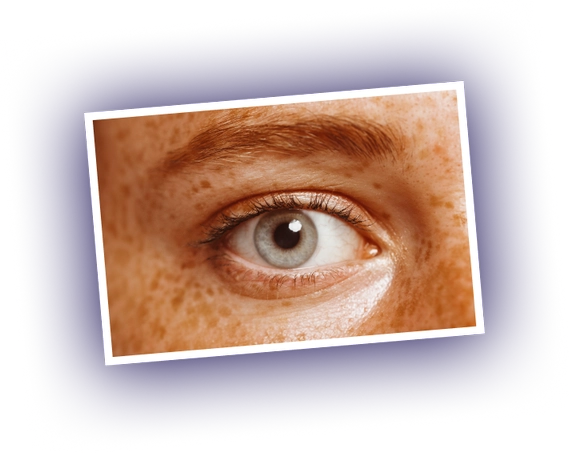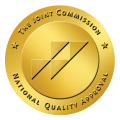Cocaine addiction is a complex and challenging issue, but it’s one that can be overcome with effective treatment. At Aftermath Addiction Treatment Center, we provide specialized care for individuals battling cocaine addiction.
Our approach is comprehensive, addressing the addiction’s physical, emotional, and psychological aspects. We offer a supportive environment that encourages healing and growth. Our team of experts uses evidence-based practices to ensure the best outcomes for our clients.
We understand that each person’s journey is unique, and we tailor our treatments to meet individual needs. Our goal is to help our clients achieve lasting recovery and a healthier, drug-free life.
At Aftermath Addiction Treatment Center in Massachusetts, we’re dedicated to fighting cocaine addiction with a variety of effective programs.
Each program is tailored to the individual, focusing on their specific recovery needs. We use a combination of individual and group therapies, family counseling, and medication management. Our aim is to guide each client towards a successful recovery journey.
We can support you or a loved one in overcoming cocaine addiction.
Cocaine, initially used recreationally, can quickly lead to serious abuse and addiction. The drug creates a powerful sense of euphoria but at a high cost to physical and mental health. Side effects include heart problems, mental health issues, and a risk of dependency.
Users often underestimate how quickly occasional use can become a dangerous habit. Recognizing these side effects is vital for seeking help early. At Aftermath, we emphasize the importance of early intervention. Understanding the risks of cocaine use is crucial in preventing long-term harm.

The long-term effects of cocaine are extensive and can lead to severe health issues. Cocaine use can cause serious heart problems such as heart attacks, arrhythmias, and even heart failure. Neurologically, it increases the risk of seizures, strokes, and brain hemorrhages.
Long-term use often results in mental health issues, including persistent anxiety, depression, and cognitive impairments. Users may experience social and occupational difficulties, like strained relationships and job loss. Additionally, chronic respiratory problems and gastrointestinal complications are common.
The short-term effects of cocaine are immediate and noticeable. Users often experience a rapid burst of energy and heightened alertness. Physically, it can lead to increased heart rate, elevated blood pressure, and dilated pupils.
However, these effects are coupled with significant risks, such as increased body temperature, erratic and violent behavior, and anxiety or paranoia. There’s also a risk of experiencing restlessness, irritability, and panic attacks. Cocaine can cause a temporary sense of euphoria, leading to potential misuse and addiction.
At Aftermath, our treatment programs address both the short- and long-term effects of cocaine addiction. We offer early intervention and comprehensive treatment plans, designed to aid in recovery and restore overall well-being.
Crack and cocaine are both derived from the coca plant but differ significantly. Cocaine is a fine white powder that is usually snorted, while crack is a rock-like substance that is usually smoked. Crack produces a faster, more intense high than cocaine.
These differences have a big influence on addiction patterns and the related health risks. Understanding these variations is critical for effective treatment. At Aftermath, we tailor our treatment approaches to address these specific forms of addiction. Our programs are designed to help clients overcome their specific substance abuse challenges.
Cocaine withdrawal is a multifaceted challenge in the recovery process. Symptoms range from physical discomforts like fatigue and tremors to psychological strains such as anxiety and intense cravings. These signs reveal the body’s dependence on cocaine.
At Aftermath, our treatment includes medication management to ease symptoms and counseling to address mental health needs. We also focus on educating clients about the withdrawal process, which helps in managing expectations and lowering anxiety.
Nutrition and wellness activities are integrated into treatment plans as well, supporting overall health. Our aim is to provide a nurturing environment that facilitates a smoother transition from addiction to recovery. We believe in supporting our clients holistically through every step of their journey to sobriety.

Cocaine overdose is a serious risk that can be life-threatening. Symptoms include chest pain, seizures, and difficulty breathing. Overdosing on cocaine can lead to heart attacks and strokes. At Aftermath, we educate our clients about these risks as part of our treatment programs.
Prompt medical attention is crucial in the case of an overdose and could make all the difference in a critical situation. Our programs also focus on education around prevention strategies, aiming to provide our clients with the knowledge and tools to avoid dangerous situations.
Cocaine is known by various street names, reflecting its presence in popular culture. Some common names include:
These names often vary by region and culture. Understanding these terms can be important in recognizing cocaine use. We educate clients and families about these terms, helping them identify and address cocaine use. Awareness of these street names is part of our comprehensive approach to addiction treatment.
Recognizing the signs of cocaine addiction is crucial for getting timely help. These signs often manifest in various behavioral, physical, and social aspects.
Behaviorally, there may be increased aggression, mood swings, and risk-taking behaviors. Physically, users might experience persistent nosebleeds, drastic weight loss, and sleep disturbances. Socially, individuals often withdraw from family and friends, neglect responsibilities, and change their social circles.
At Aftermath, we focus on educating clients and their families about these signs for early intervention. Our comprehensive treatment programs address these symptoms, providing targeted support for a successful recovery journey. It’s vital to understand these signs and act promptly for effective treatment and recovery.
Key Signs of Cocaine Addiction:
Aftermath’s Cocaine Rehab Program is designed to help people embrace change and recover from addiction. The program provides a comprehensive approach, including therapy, counseling, and support groups. At Aftermath, we focus on understanding the root causes of addiction and developing effective coping strategies.
Personalized care plans are created for each individual, with the goal being to promote long-term recovery and a return to a healthier lifestyle. Support and guidance from experienced professionals are key elements in our programs, empowering individuals to overcome addiction and rebuild their lives.
If you or a loved one are facing challenges with cocaine use, we encourage you to reach out for support. At Aftermath, we’re here to provide compassionate care and effective treatment. You’re not alone in this journey, and taking the first step towards recovery can make all the difference.
Yes, cocaine is highly addictive due to its powerful effects on the brain’s reward pathways, leading to psychological dependence.
Cocaine is a potent stimulant that accelerates various physical and mental processes, significantly impacting the central nervous system.
Yes, overdosing on cocaine is possible and can be life-threatening. Even a small dose can cause severe cardiovascular and neurological effects, depending on multiple factors such as body weight, age, and drug use history.
Cocaine’s effects last a short period, but it can be detected in the body for several days, with the exact duration depending on usage patterns and individual metabolism.
No, cocaine is not an opioid; it is a stimulant, whereas opioids are primarily pain-relieving depressants.
Signs of cocaine use include heightened alertness, dilated pupils, overconfidence, excessive chattiness, and in some cases, nosebleeds or sniffling.
Cocaine is highly dangerous due to its addictive nature, the risk of overdose, and its harmful impact on both mental and physical health.




607 North Avenue Suite 11E,
Wakefield MA 01880
© 2022 Aftermath Addiction Treatment Center. All Rights Reserved.